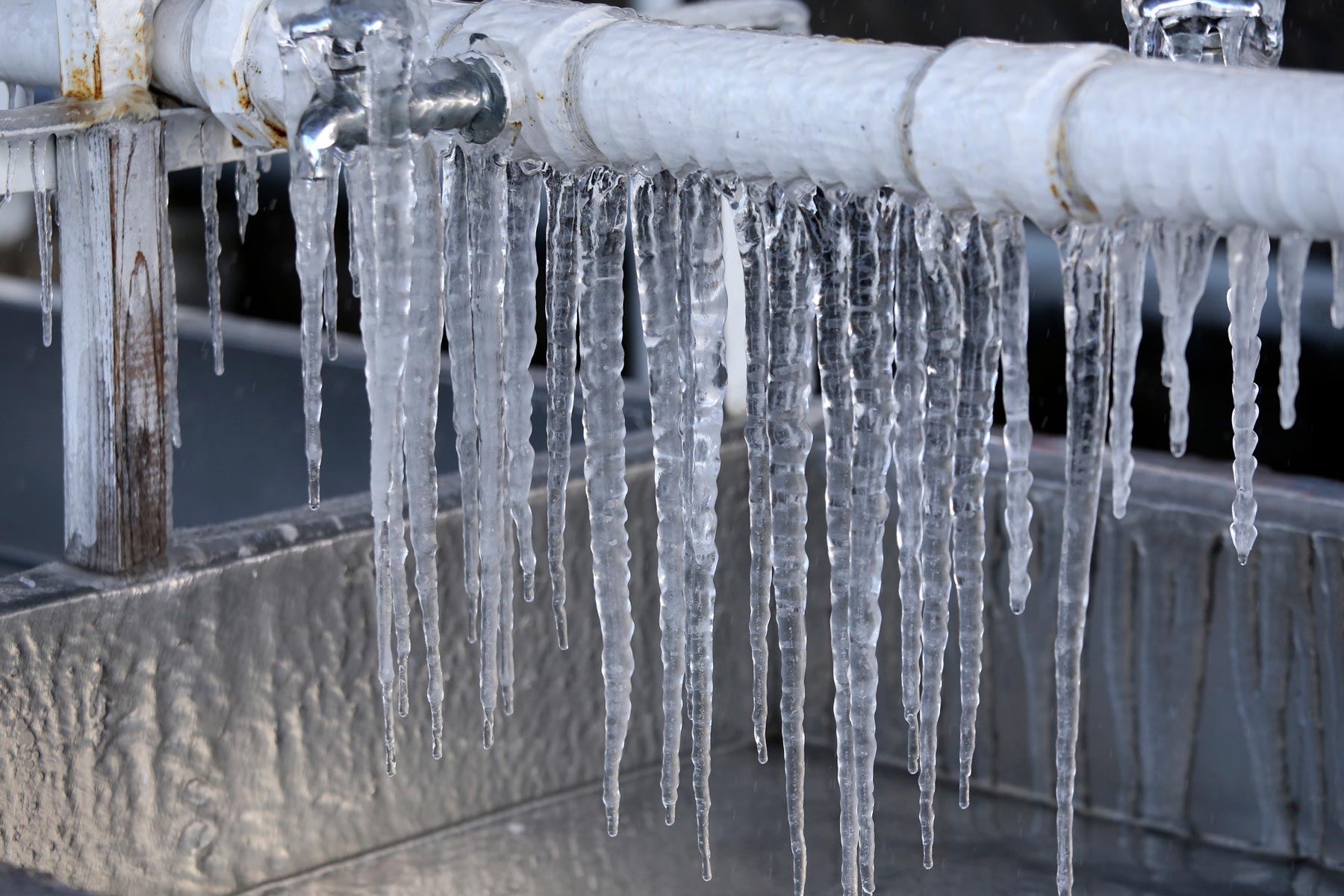Tips for Avoiding Frozen Plumbing in Winter: Expert Tips
Tips for Avoiding Frozen Plumbing in Winter: Expert Tips
Blog Article
They are making a few great points related to Prevent Frozen Pipes as a whole in this content further down.
:strip_icc()/snow-outdoor-faucet-pipes-4af65d1e5e904fb1aa7bf74071fe5d89.jpg)
Winter can ruin your pipes, specifically by freezing pipelines. Below's exactly how to avoid it from happening and what to do if it does.
Intro
As temperature levels drop, the danger of icy pipelines increases, potentially causing pricey repairs and water damage. Comprehending exactly how to stop icy pipelines is crucial for home owners in cool environments.
Comprehending Frozen Pipelines
What causes pipelines to ice up?
Pipes ice up when exposed to temperature levels below 32 ° F (0 ° C) for prolonged durations. As water inside the pipes ices up, it increases, putting pressure on the pipeline wall surfaces and potentially triggering them to break.
Risks and damages
Icy pipelines can lead to water system disturbances, residential or commercial property damage, and costly fixings. Ruptured pipes can flood homes and cause comprehensive architectural damages.
Indications of Frozen Pipeline
Recognizing icy pipes early can prevent them from rupturing.
Exactly how to identify icy pipes
Search for lowered water flow from taps, uncommon odors or noises from pipelines, and noticeable frost on exposed pipes.
Avoidance Tips
Shielding susceptible pipes
Cover pipelines in insulation sleeves or make use of heat tape to safeguard them from freezing temperatures. Concentrate on pipelines in unheated or external locations of the home.
Home heating strategies
Maintain indoor rooms properly warmed, particularly areas with pipes. Open cupboard doors to allow cozy air to circulate around pipelines under sinks.
Protecting Outside Plumbing
Garden tubes and outside taps
Disconnect and drain yard hoses before winter months. Mount frost-proof spigots or cover exterior faucets with protected caps.
What to Do If Your Pipelines Freeze
Immediate actions to take
If you think icy pipelines, maintain faucets available to soothe stress as the ice melts. Use a hairdryer or towels soaked in warm water to thaw pipelines gradually.
Long-Term Solutions
Architectural changes
Consider rerouting pipes away from outside wall surfaces or unheated locations. Include added insulation to attic rooms, cellars, and crawl spaces.
Upgrading insulation
Purchase high-quality insulation for pipes, attic rooms, and walls. Correct insulation assists maintain consistent temperature levels and lowers the threat of icy pipelines.
Conclusion
Preventing frozen pipelines requires positive measures and quick feedbacks. By comprehending the causes, indications, and safety nets, house owners can safeguard their pipes throughout winter.
Helpful Tips to Prevent Frozen Pipes this Winter
UNDERSTANDING THE BASICS: WHY PIPES FREEZE AND WHY IT’S A PROBLEM
Water freezing inside pipes is common during the winter months, but understanding why pipes freeze, and the potential problems it can cause is crucial in preventing such incidents. This section will delve into the basics of why pipes freeze and the associated problems that may arise.
THE SCIENCE BEHIND FROZEN PIPES
When water reaches freezing temperatures, it undergoes a physical transformation and solidifies into ice. This expansion of water as it freezes is the primary reason pipes can burst. As the water inside the pipe freezes, it expands, creating immense pressure on the walls. If the pressure becomes too great, the pipe can crack or rupture, leading to leaks and water damage.
FACTORS THAT CONTRIBUTE TO PIPE FREEZING
Low Temperatures: Extremely cold weather, especially below freezing, increases the risk of pipes freezing. Uninsulated or Poorly Insulated Pipes: Pipes located in unheated areas, such as basements, crawl spaces, or attics, are more prone to freezing. Insufficient insulation or lack of insulation altogether exacerbates the problem. Exterior Wall Exposure: Pipes running along exterior walls are susceptible to freezing as they encounter colder temperatures outside. Lack of Heating or Temperature Regulation: Inadequate heating or inconsistent temperature control in your home can contribute to frozen pipes. PROBLEMS CAUSED BY FROZEN PIPES
- Pipe Bursting: As mentioned earlier, the expansion of water as it freezes can cause pipes to burst, resulting in significant water damage.
- Water Damage: When pipes burst, it can lead to flooding and water damage to your property, including walls, ceilings, flooring, and personal belongings.
- Structural Damage: Prolonged exposure to water from burst pipes can compromise the structural integrity of your home, leading to costly repairs.
- Mold and Mildew Growth: Excess moisture from water damage can create a favorable environment for mold and mildew growth, posing health risks to occupants.
- Disrupted Water Supply: Frozen pipes can also result in a complete or partial loss of water supply until the issue is resolved.
WHY CERTAIN PIPES ARE MORE PRONE TO FREEZING
- Location: Pipes located in unheated or poorly insulated areas, such as basements, crawl spaces, attics, or exterior walls, are at higher risk of freezing.
- Exterior Pipes: Outdoor pipes, such as those used for irrigation or exposed plumbing, are particularly vulnerable to freezing as they are directly exposed to the elements.
- Supply Lines: Pipes that carry water from the main water supply into your home, including the main water line, are critical to protect as freezing in these lines can affect your entire plumbing system.
- Underground Pipes: Pipes buried underground, such as those connected to sprinkler systems or outdoor faucets, can be susceptible to freezing if not properly insulated.
https://busybusy.com/blog/helpful-tips-to-prevent-frozen-pipes-this-winter/

We are very involved in Helpful Tips to Prevent Frozen Pipes this Winter and I am hoping you enjoyed reading my blog post. Don't hesitate to set aside a second to share this blog posting if you enjoyed it. We value your readership.
Click Here Report this page